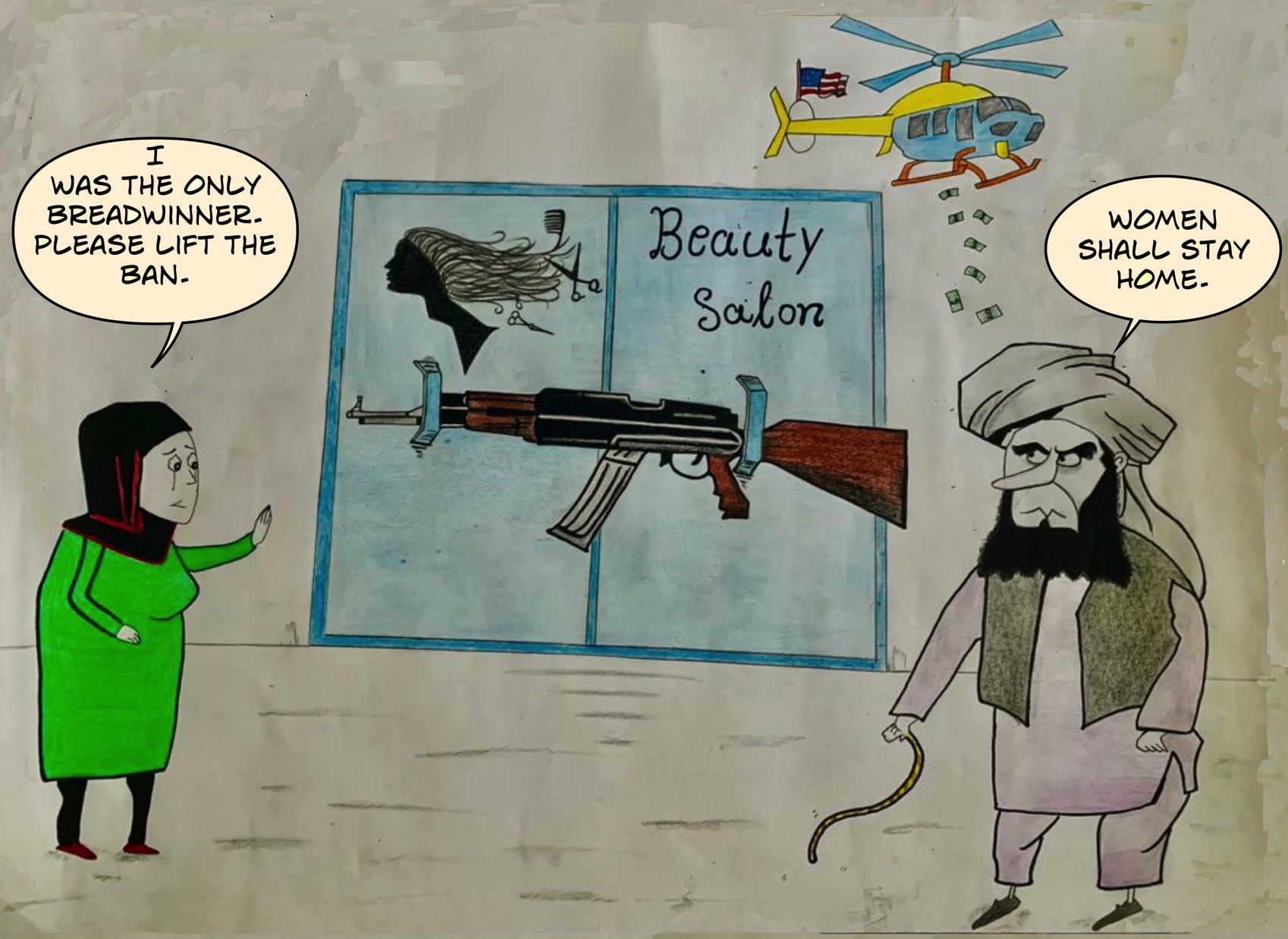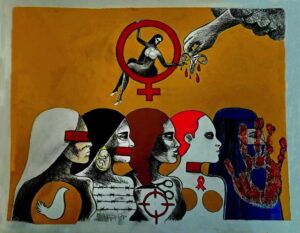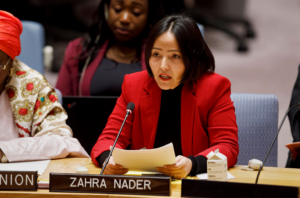By Maela Sanmartin (Text) and Homaira Afghani (Drawing)
Progressive closings have made the streets look emptier, and even women’s faces have been covered with spray from the outside of beauty salons to hide their faces and eliminate them from public life. All hairdressers and beauty salons have been closed by first of August. Tolo TV shared on Facebook recently that the authorities also prevent women running beauty businesses in their homes.
The Taliban has a Ministry of Vice and Virtue, which is responsible for enforcing the group’s strict Draconian interpretation of Islamic law. The spokesperson, Mohammad Sadiq Akif, stated that women’s beauty salons in Kabul and its provinces should be granted a month to cease their business operations, and their licenses and contracts shall be suspended. This measure has affected 34 provinces and has led to thousands of women losing jobs across the country. Samia Faqiri, a 38-year-old salon owner, said in an Interview with the US-based Nation Public Radio Station (NPR) on 14th of July, “”I’ve been crying since I heard the news. All my assistants are crying.” She is a salon owner, who supports her family. “What will we do after this?”

Since the Taliban assumed power on August 15th, 2021, the closure of beauty salons has been a further restriction to prohibit women’s rights. Other recent restrictions imposed on women before the closure of beauty salons include the prohibition of their access to universities, gyms, and parks, the disqualification from working in the United Nations, the requirement to wear full-body coverings on the streets, and the requirement to be accompanied by a male family member when traveling over a distance of 72 kilometers.
United Nations officials and Western diplomats like Rina Amiri, the U.S. special envoy to Afghanistan, quickly condemned the ban. “The Taliban ban on beauty parlors removes another vital space for women’s work at a time when they’re struggling to feed their families, eliminates one of the few refuges for women outside the home & further transforms the country into a cruel & extreme outlier in the world,” Amiri tweeted.
Several demonstrations have taken place in the country. A number of women took to the streets on the 19th of July to express their disapproval of the restrictions on their rights. You could read “bread, work and freedom” on some of the banners. These women exhibited remarkable courage in breaking the Taliban’s ban to demonstrate, which led to their dispersal by the Taliban with aerial fire and water cannons a few minutes later.
The emergence of beauty parlors in Kabul and other Afghan cities came about after the Taliban’s ouster from power in late 2001, just weeks after the September 11th attacks on the US.In Afghanistan, there were more than 12,000 beauty salons operating, and approximately 60.000 women were employed in them.

Many of them stayed open after the Taliban came back to power two years ago, giving some women jobs and their customers services. Hair salons used to serve only women with covered windows, so that customers could not be seen from outside. These shops were the main source of income for plenty of families. The measures imposed by the Taliban government violate human rights, the opportunities for women to gather, discuss, and organize, as well as the elimination of spaces of freedom for them. The beauty salons were one of the last venues where women could engage in conversation, offer assistance to one another, and collaborate.
The closing of beauty salons in Afghanistan represents another severe loss of human rights in Afghanistan and an attack on women’s freedom around the world. It implies the loss of some equality rights that were already secured, it implies the control over women’s bodies, the elimination of all women’s chances to participate in public life, and a massive assault on freedom, leading to a decrease in financial support for numerous households and a decline in the economic condition of the country.


